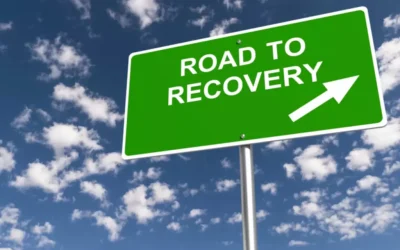You don’t need to know where you’ll end up to make incredible strides. Many Monument members have shared that the first week of sobriety was one of the most difficult hurdles in their journey because of all the changes. After one week without alcohol, you’ve proven to yourself that you can do hard things. You’ve discovered that incorporating self-care into your routine is obtainable, and given your body the time to start to regain its natural balance. Another common experience in the early days of sobriety is intense alcohol cravings.
How long does brain fog from drinking last?
- We also recommend asking your physician about how to improve your overall sleep hygiene.
- Brain fog occurs when a medical condition impedes a person’s ability to think clearly.
- They can also help you manage any symptoms of alcohol withdrawal you experience when you stop drinking.
- “I feel really, really good, and support from the fans and everything has been really, really good.”
- Withdrawal symptoms can quickly go from a bad hangover to a serious medical situation.
It’s important to note that the Clinical Assessment mentioned above may be unreliable because it is subjective in nature. According to a 2017 study, the use of the Objective Alcohol Withdrawal Scale (OAWS) alcohol withdrawal brain fog was more useful for treatment because it can be used as a framework and tailored to individual cases. Read on to learn about the symptoms of AWS, as well as how it can be treated or prevented.
What to Expect on Your First Day of Sobriety
If you’re trying to cope with drinking too much, talk with your healthcare professional. They then develop healthy thought patterns that help them how is methamphetamine manufactured cope with stress and refuse alcohol. They may not remember people’s names, even people who they know well. They may not be able to form short-term memories because they are confused or thinking about other things.
- The good news is that studies show that people who maintain sobriety continue to recover cognitive function over several months to 1 year, and they experience significant increases in brain volume compared to people who don’t abstain.
- People who are daily or heavy drinkers may need medical support to quit.
- “He was incredulous that he’d never noticed,” Curtis said, adding that she’s been sober ever since.
A Timeline for Cognitive Recovery after Abstinence
ADHD and alcohol: Understanding the link and risks – Medical News Today
ADHD and alcohol: Understanding the link and risks.
Posted: Thu, 01 Jun 2023 07:00:00 GMT [source]
Moderate drinking is officially defined as 1 drink or less per day for women and 2 drinks or less per day for men. However, if a person already has alcohol use disorder, they can help prevent some of the withdrawal symptoms by speaking to a doctor about safe withdrawal. The best way to prevent AWS is to avoid regular heavy drinking. If you already have alcohol use disorder, it’s important to seek counseling and medical care as soon as possible.
- We often don’t realize it, but water actually helps our brain cells communicate with each other.
- Feeling mentally drained happens to everyone from time to time, especially when experiencing sleeping difficulties.
Broken and Bleeding: Emotional Trauma and Substance Use Disorder
Addiction Info
